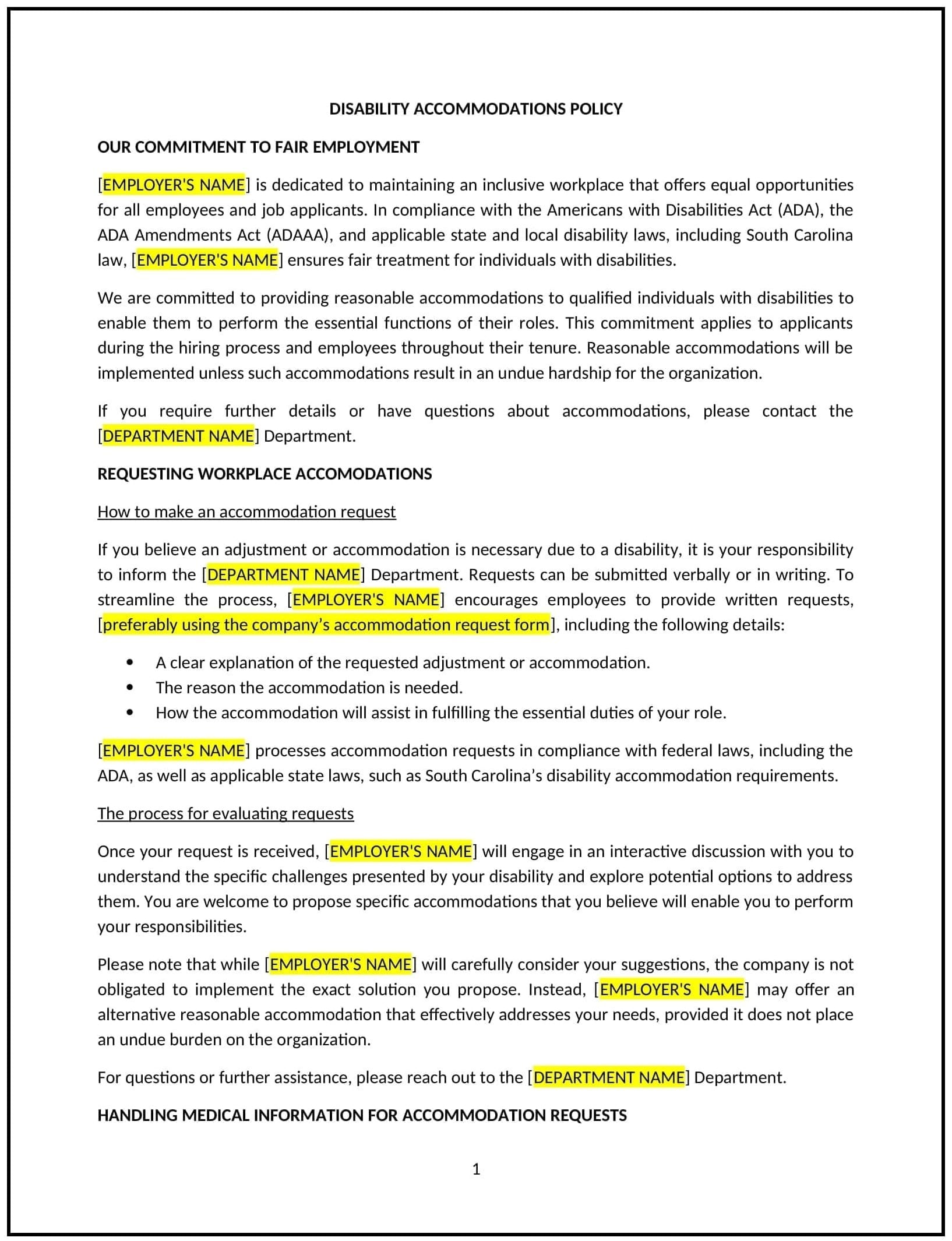Disability accommodations policy (South Carolina): Free template
Got contracts to review? While you're here for policies, let Cobrief make contract review effortless—start your free review now.

Customize this template for free
Disability accommodations policy (South Carolina)
This disability accommodations policy is designed to help South Carolina businesses create a framework for providing reasonable accommodations to employees with disabilities. It outlines procedures for requesting accommodations, evaluating needs, and implementing solutions to support employees in performing their job duties.
By adopting this policy, businesses can promote inclusivity, comply with federal and state disability laws, and foster a supportive work environment.
How to use this disability accommodations policy (South Carolina)
- Define reasonable accommodations: Explain what constitutes a reasonable accommodation, such as modified work schedules, assistive technology, or workspace adjustments.
- Establish request procedures: Provide steps for employees to request accommodations, including required documentation and timelines.
- Evaluate requests: Describe how the business will assess accommodation requests and determine feasibility.
- Implement accommodations: Outline the process for providing approved accommodations and monitoring their effectiveness.
- Train managers: Educate supervisors on handling accommodation requests and maintaining confidentiality.
- Review and update: Assess the policy annually to ensure it aligns with evolving legal standards and business needs.
Benefits of using this disability accommodations policy (South Carolina)
This policy offers several advantages for South Carolina businesses:
- Promotes inclusivity: Demonstrates a commitment to supporting employees with disabilities.
- Enhances productivity: Helps employees perform their job duties effectively with appropriate accommodations.
- Aligns with legal standards: Supports compliance with federal and state disability laws, such as the Americans with Disabilities Act (ADA).
- Builds employee loyalty: Shows employees that the business values their contributions and well-being.
- Reduces legal risks: Minimizes the potential for disputes or lawsuits related to disability accommodations.
Tips for using this disability accommodations policy (South Carolina)
- Communicate the policy: Share the policy with employees and include it in the employee handbook.
- Provide training: Educate managers on handling accommodation requests and maintaining confidentiality.
- Monitor adherence: Regularly review accommodation requests to ensure they are addressed promptly and fairly.
- Address issues promptly: Take corrective action if accommodation requests are mishandled or denied improperly.
- Update regularly: Assess the policy annually to ensure it aligns with evolving legal standards and business needs.